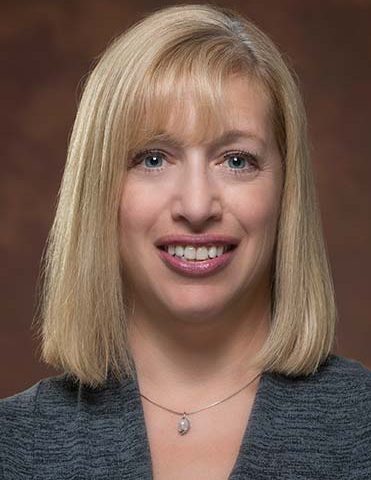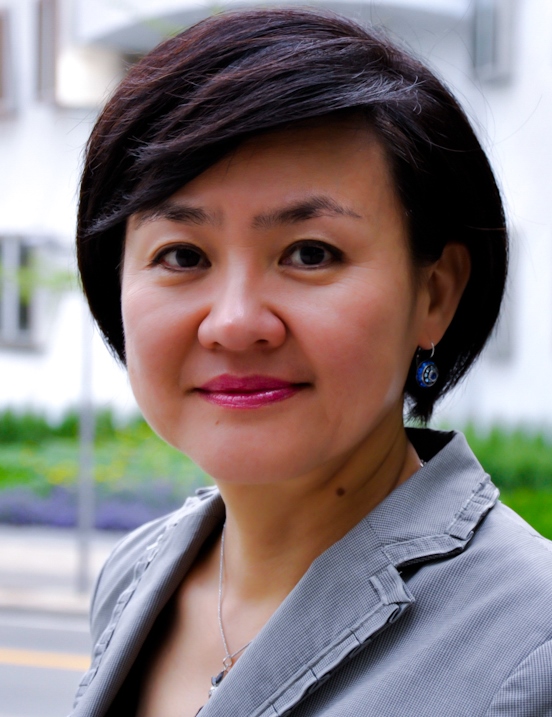2020 PROGRAM AND VIDEOS
The event was held at the Kovens Conference Center at the Florida International University.
| 7:30 AM | Check-in and Continental Breakfast | |
| 8:15 AM | Introductions/Welcome Notes | Keith Johnson, MD, Massachusetts General Hospital |
| 8:30 AM | DIDACTIC SESSION A: PET Technical/Methods | CHAIR: Chester Mathis, PhD, University of Pittsburgh |
| 8:30 AM | Multi-site and longitudinal studies considerations | Robert Koeppe, PhD, University of Michigan |
| 8:55 AM | Centiloids | Christopher Rowe, MD, Austin Health |
| 9:20 AM | In silico and computational chemistry methods in the development of PET radiotracers for imaging alpha synuclein | Robert Mach, PhD, University of Pennsylvania |
| 9:45 AM | POSTER SESSION 1A and Coffee Break | |
| 10:30 AM | DIDACTIC SESSION B: Neuropathology | CHAIR: William Klunk, MD, University of Pittsburgh |
| 10:30 AM | Basic neuropathology of Abeta, tau and a-syn | Julie Schneider, MD, Rush University |
| 11:00 AM | Technical considerations for IHC, HC, biochemistry | Milos Ikonomovic, MD, University of Pittsburgh |
| 11:30 AM | Technical considerations for homogenate binding | Laetitia Lemoine, PhD, Karolinska Institute |
| 12:00 PM | Maturity states of plaques and tangles | Melissa Murray, PhD, Mayo Clinic |
| 12:30 PM | Lunch | |
| 1:45 PM | SESSION 1: TECHNICAL I | CHAIRS: Brad Christian, PhD, University of Wisconsin-Madison Ansel Hillmer, PhD, Yale University |
| 1:45 PM | Evaluation of 18F-JNJ-067 as a tau tracer | Suzanne Baker, PhD, Lawrence Berkeley National Laboratory |
| 2:00 PM | A direct comparison of tau imaging agents [F-18]AV-1451 AND [F-18]MK-6240 in human subjects | Brian Lopresti, MS, University of Pittsburgh |
| 2:15 PM | A multi-center comparison of [18F]flortaucipir, [18F]RO948 and [18F]MK6240 tau-PET tracers to detect optimal target ROIs for differential diagnosis | Rik Ossenkoppele, PhD, VU University Medical Center |
| 2:30 PM | Capturing extra-cerebral MK-6240 signal with surface projections | Justin Sanchez, BA, Massachusetts General Hospital |
| 2:45 PM | Discussion Session 1 | |
| 3:15 PM | Keynote Lecture Pathology progression modelling in Alzheimer’s disease (This lecture will be recorded) | Alan Evans, PhD, McGill University |
| 3:45 PM | Keynote Discussion | |
| 4:00 PM | POSTER SESSION 1B (repeat of 1A) and Coffee Break | |
| 4:45 PM | SESSION 2: TECHNICAL II | CHAIRS: Julie Price, PhD, Harvard Medical School Suzanne Baker, PhD, Lawrence Berkeley National Laboratory |
| 4:45 PM | Amyloid Load predicts elevated tau deposition in Down syndrome | Matt Zammit, MS, University of Wisconsin |
| 5:00 PM | TauIQ demonstrates increased power for cross-sectional and longitudinal analysis of Tau tracers as evidenced by [18F]Flortaucipir and [18F]GTP1 | Roger Gunn, PhD, Invicro |
| 5:15 PM | Spatiotemporal imaging phenotypes of tau pathology in Alzheimers disease | Jacob Vogel, PhD (cand.), McGill University |
| 5:30 PM | Predicting structural, metabolic and pathologic disease progression in autosomal dominant Alzheimers disease with machine learning | Patrick Luckett, PhD, Washington University in St. Louis |
| 5:45 PM | Correction of partial volume effects for tau PET imaging using the kernel method | Kuang Gong, PhD, MGH/Harvard Medical School |
| 6:00 PM | Discussion Session 2 | |
| 6:30 PM | Welcome Reception | |
| 8:30 PM | End of Day 1 | |
| 7:30 AM | Check-in and Continental Breakfast | |
| 8:30 AM | SESSION 3: NEUROPATHOLOGY I | CHAIRS Laetitia Lemoine, PhD, Karolinska Institute Teresa Gomez-Isla, MD, Massachusetts General Hospital |
| 8:30 AM | Flortaucipir PET often shows uptake greater in regions outside of the medial temporal lobe than in entorhinal cortex in low Braak tangle stage participants | Val Lowe, MD, Mayo Clinic |
| 8:45 AM | Brain volume and [18F]flortaucipir PET analysis of progressive supranuclear palsy clinical variants | Jennifer Whitwell, PhD, Mayo Clinic |
| 9:00 AM | Comparison of autoradiographic binding profiles of Flortaucipir, MK-6240 and PI-2620 in human postmortem tissue samples across the spectrum of neurodegenerative diseases | Cinthya Aguero, MD, Massachusetts General Hospital |
| 9:15 AM | Biochemical correlates of tau and amyloid PET imaging in four autopsy brains | Milos Ikonomovic, MD, University of Pittsburgh |
| 9:30 AM | Discussion Session 3 | |
| 10:00 AM | Keynote Lecture Amyloid and tau: one of multiple pathways to tissue injury, degeneration, and Alzheimer’s dementia (This lecture will be recorded) | Julie Schneider, MD, MS, Rush University |
| 10:30 AM | Keynote Discussion | |
| 10:45 AM | POSTER SESSION 2A and Coffee Break | |
| 11:30 AM | SESSION 4: NEUROPATHOLOGY II | CHAIRS Melissa Murray, PhD, Mayo Clinic Julie Schneider, MD, MS, Rush University |
| 11:30 AM | Derivation and potential utility of an Abeta-PET based pathology accumulation index for estimation of brain Abeta load | Ruben Smith, MD, PhD, Lund University |
| 11:45 AM | In vitro study of the evidence of tauopathy in Parkinsons disease (PD) brains using a tau PET tracer, [3H]MK-6240, by autoradiography | Zhizhen Zeng, MD, PhD, Merck & Co. Inc. |
| 12:00 PM | In vitro characterization of second-generation tau pet tracers in human autopsy brain tissue | Mona-Lisa Malarte, PhD (cand.), Karolinska Institute |
| 12:15 PM | Neurofibrillary tangle maturity: a comprehensive review | Christina Moloney, PhD, Mayo Clinic |
| 12:30 PM | Discussion Session 4 | |
| 1:00-2:30 | Lunch | |
| 2:30 PM | SESSION 5: CLINICAL I | CHAIRS: Keith Johnson, MD, Massachusetts General Hospital Pedro Rosa-Neto MD, PhD, McGill University |
| 2:30 PM | History of head injury is associated with greater tau deposition on [18F]Flortaucipir PET in MCI and AD Patients | Shannon Risacher, PhD, Indiana University School of Medicine |
| 2:45 PM | In vivo measurement of widespread synaptic loss in early Alzheimers disease with SV2A PET | Adam Mecca, MD, PhD, Yale University |
| 3:00 PM | Amyloid PET is more than just positive or negative: Aβ-amyloid level impacts risk of clinical progression in non-demented individuals | Christopher Rowe, MD, Austin Health |
| 3:15 PM | 18F-PI2620 tau-PET in Progressive Supranuclear Palsy a multi-center evaluation | Matthias Brendel, MD, University Hospital of Munich |
| 3:30 PM | Discussion Session 5 | |
| 4:00 PM | POSTER SESSION 2B (repeat of 2A) and Coffee Break | |
| 4:45 PM | SESSION 6: CLINICAL II | CHAIRS William Jagust, MD, University of California, Berkeley David Wolk, MD, University of Pennsylvania |
| 4:45 PM | Tau-PET associations with amyloid positivity and cognitive impairment | Susan Landau, PhD, University of California, Berkeley |
| 5:00 PM | Locus coeruleus integrity tracks with initial Alzheimer's disease-related pathology and cognitive decline | Heidi Jacobs, PhD, Massachusetts General Hospital |
| 5:15 PM | Area 35 is the earliest subregion in the medial temporal lobe affected by tau pathology | David Berron, PhD, Lund University |
| 5:30 PM | Discussion Session 6 | |
| 6:00 PM | Networking Reception | |
| 8:00 PM | End of Day 2 | |
| 7:30 AM | Check-in and Continental Breakfast | |
| 8:30 AM | SESSION 7A: TAU I | CHAIRS Tobey Betthauser, PhD, University of Wisconsin Sylvia Villeneuve, PhD, McGill University |
| 8:30 AM | The implications of different approaches to define AT(N) in Alzheimer's disease | Antoine Leuzy, PhD, Lund University |
| 8:45 AM | Towards a CenTauR cortical mask | Vincent Dore, PhD, CSIRO |
| 9:00 AM | Tau positivity: comparing flortaucipir meta-ROI vs. maximum of regional Z-scores | Christopher Schwarz, MD, Mayo Clinic |
| 9:15 AM | POSTER SESSION 3A and Coffee Break | |
| 10:00 AM | SESSION 7B: TAU II | CHAIRS Clifford Jack, MD, Mayo Clinic Reisa Sperling, MD, Brigham and Women's Hospital Victor Villemagne, MD, Austin Health |
| 10:00 AM | Critical threshold of elevated amyloid associated with rapid tau accumulation: a ca-tau-strophe in the making | Keith Johnson, MD, Massachusetts General Hospital |
| 10:15 AM | Defining a tau positive flortaucipir PET signal relative to AD neuropathology | Michael Pontecorvo, PhD, Avid Pharmaceuticals |
| 10:30 AM | Longitudinal tau PET changes in cognitively unimpaired persons with different β-amyloid levels | David Knopman, MD, Mayo Clinic |
| 10:45 AM | The meaning of tau positivity with respect to clinical progression | Michael Devous, PhD, Avid Pharmaceuticals |
| 11:00 AM | Discussion Session 7 (TAU I and TAU II) | |
| 12:00 PM | Keynote Lecture (This lecture will be recorded) | Li-Huei Tsai, PhD, Massachusetts Institute of Technology |
| 12:30 PM | Keynote Discussion | |
| 12:45 PM | Lunch | |
| 2:00 PM | SESSION 8: CLINICAL III | CHAIRS Elizabeth Mormino, PhD, Stanford University Susan Landau, PhD, University of California, Berkeley |
| 2:00 PM | Glucose metabolism reflects local atrophy and tau pathology at symptomatic stages of Alzheimer's disease | Amelia Strom, BS, University of California San Francisco |
| 2:15 PM | Plasma FLT1 predicts amyloid-β related cognitive decline in cognitively normal older adults | Hyun-Sik Yang, MD, Brigham and Women's Hospital |
| 2:30 PM | Reducing sample sizes to detect longitudinal amyloid accumulation | Isadora Lopes Alves, PhD, VUmc |
| 2:45 PM | Discussion Session 8 | |
| 3:15 PM | POSTER SESSION 3B (repeat of 3A) and Coffee Break | |
| 4:00 PM | Awards Ceremony | |
| 4:15 PM | SESSION 9: PLASMA | CHAIRS Oskar Hansson, PhD, Lund University Gil Rabinovici, MD, UCSF |
| 4:15 PM | Plasma P-tau181 as a marker of tau pathology in Alzheimers disease: relationship to Tau PET, differential diagnosis, neuropathology and longitudinal progression | Oskar Hansson, PhD, Lund University |
| 4:30 PM | Plasma levels of an N-terminal tau fragment are highly associated with future cognitive decline and neurodegeneration in clinically normal elderly: Findings from the Harvard Aging Brain Study | Jasmeer Chhatwal, MD, MGH/Harvard University |
| 4:45 PM | Plasma biomarkers associate with amyloid and tau PET binding in cognitively unimpaired older adults with a parental history of AD | Pierre-Francois Meyer, PhD, McGill University |
| 5:00 PM | High-performance plasma phospho-tau181 biomarker for Alzheimers disease | Tharick Pascoal, PhD, McGill University |
| 5:15 PM | Discussion Session 9 | |
| 5:45 PM | Closing Notes | Keith Johnson, MD, Massachusetts General Hospital |
| 6:00 PM | END OF MEETING | |
The 18th Mild Cognitive Impairment Symposium and Special Topic Workshop (CME/CE accredited) followed immediately on January 18-19, 2020 at the same venue.
2020 KEYNOTE LECTURES
ALAN EVANS, PhD
 Dr. Alan Evans is a James McGill Professor of Neurology and Neurosurgery, Psychiatry and Biomedical Engineering at McGill University since 2009, and a researcher in the McConnell Brain Imaging Centre (BIC) of the Montreal Neurological Institute.
Dr. Alan Evans is a James McGill Professor of Neurology and Neurosurgery, Psychiatry and Biomedical Engineering at McGill University since 2009, and a researcher in the McConnell Brain Imaging Centre (BIC) of the Montreal Neurological Institute.
He is co-director of the Ludmer Centre for Neuroinformatics and Mental Health and is Principal Investigator of CBRAIN, a pan-Canadian project to integrate Canadian brain research with the Compute Canada high-performance computing grid. He is the sole Canadian participant in the $1.1 billion European Human Brain Project, and is a co-principal investigator of the Big Brain project. He is Scientific Director of McGill’s $84 million CFREF project, “Healthy Brains for Healthy Lives.”
Dr. Evans heads the Data Coordinating Center for a large NIH multi-centre MRI study of normal pediatric development. This provides a web-accessible reference database of neuroanatomical and behavioral maturation. Dr. Evans was principal investigator in the Montreal Consortium for Brain Imaging Research (MCBIR), which was founded in 2000 with a $35 million award from the Canada Foundation for Innovation. He was a co-founder of the International Consortium for Brain Mapping (ICBM), a multinational effort funded by the U.S. Human Brain Project to create a computational atlas of the adult human brain. He was one of the founders of the Organization for Human Brain Mapping (OHBM), serving in numerous positions on the OHBM Council since 1995.
Dr. Evans’ research interests include cognitive neuroimaging, neuroanatomical variability, and image-processing methodologies for PET and MRI. He pioneered the technique of multi-modal 3D brain imaging with PET and MRI, which provides detailed 3D images of brain anatomy.
As BIC Coordinator from 1992 to 2000, Dr. Evans fostered the development of brain “activation” studies in which specific brain regions show subtle changes in blood flow in response to cognitive and sensorimotor stimuli. This so-called brain-mapping technique is widely used to map human brain functions. Dr. Evans extended these techniques to large-scale studies of brain anatomy. This work has spun off a new company, Biospective Inc., which performs fully automated analysis of neuroimaging databases collected as part of pharmaceutical clinical trials.
Dr. Evans has published over 550 peer-reviewed papers, and is a member of numerous international advisory boards, review panels and research collaborations. He was acknowledged as a Thompson-Reuters Highly Cited Scientist for 2014 and 2015 (top 1% in Neuroscience and Behaviour).
JULIE SCHNEIDER, MD, MS
 Dr. Julie A. Schneider is the The Deborah R. And Edgar D. Jannotta Presidential Professor of Pathology (Neuropathology) and Neurological Sciences, and Associate Director at the Rush Alzheimer’s Disease Center, at Rush University Medical Center. She completed her Neurology residency at the University of Chicago and Neuropathology fellowship at Emory University in Atlanta and is board certified in both specialties.
Dr. Julie A. Schneider is the The Deborah R. And Edgar D. Jannotta Presidential Professor of Pathology (Neuropathology) and Neurological Sciences, and Associate Director at the Rush Alzheimer’s Disease Center, at Rush University Medical Center. She completed her Neurology residency at the University of Chicago and Neuropathology fellowship at Emory University in Atlanta and is board certified in both specialties.
Dr. Schneider is also certified in Geriatric Neurology, and has a Master’s Degree in Clinical Research with a focus in Epidemiology. She is the Neuropathology Core Leader of the Rush Alzheimer’s Disease Center and the senior neuropathologist for multiple studies including the Religious Orders Study, Rush Memory and Aging Project, and Rush Minority Aging Research Study, Rush Latino Core, and NCRAD (National Cell Repository for Alzheimer’s disease).
Dr. Schneider has provided peer review for over 25 journals; has been invited to multiple journal editorial boards; and has provided numerous grant peer reviews for the National Institutes of Health, Alzheimer’s Association, and other agencies. She has served on numerous scientific and external national and international advisory boards for academia and industry; and has presented findings from her research both nationally and internationally.
Dr. Schneider has extensive experience with clinical-pathologic epidemiologic studies of aging and dementia and has over 300 peer-reviewed publications and 4 book chapters. She also has extensive experience collaborating with researchers, participating in multicenter grants and initiatives, and partnerships with industry to advance science.
The foundation of Dr. Schneider’s research is the exploration of pathologic factors in the clinical expression of cognitive decline in aging, with a focus on vascular, TDP-43, hippocampal sclerosis and mixed pathologies in Alzheimer’s and related dementias.
Dr. Schneider has over 300 peer-reviewed publications and an H-factor of 104. Her current research leverages neuropathology to advance understanding of risk, methods for diagnosis, and biomarker development for vascular, TDP, and mixed pathologies.
LI-HUEI TSAI, PhD
 Dr. Li-Huei Tsai is a leader in understanding the molecular pathophysiology of neurological disorders affecting cognition. Her work has brought new mechanisms for learning, memory and neurodegeneration to light and suggests new paths for combating age-related memory loss.
Dr. Li-Huei Tsai is a leader in understanding the molecular pathophysiology of neurological disorders affecting cognition. Her work has brought new mechanisms for learning, memory and neurodegeneration to light and suggests new paths for combating age-related memory loss.
Landmark discoveries include pinpointing major genetic risk for Alzheimer’s disease to immune genes, identifying chromatin-modifiers and kinases that regulate brain flexibility and can be targeted to improve cognition in Alzheimer’s disease, and discovering that genomic integrity is critical for neuronal protection during both aging and neurodegenerative disease.
In 2019, Dr. Tsai won the Hans Wigzell Prize in Medicine for 2018 for her innovative research in trying to understand the etiology and possible treatment of Alzheimer’s disease. She is a recipient of the Young Investigator Award, Metropolitan Life Foundation, Outstanding Contributor Award of the Alzheimer Research Forum, the NIH Cantoni Lecture Award and the Glenn Award For Research in Biological Mechanisms of Aging.
Dr. Tsai is Director of the The Picower Institute for Learning and Memory, Picower Profess or Neuroscience and Senior Associate Member, Broad Institute.
She is a Fellow of the American Association for the Advancement of Science and a member of the Institute of Medicine of the National Academy of Sciences, the Neurodegeneration Consortium and Taiwan’s Academia Sinica.
Dr. Tsai has authored and co-authored over 130 peer-reviewed articles published in Nature, Cell, Neuron, Molecular Psychiatry, The Journal of Neuroscience, Nature Neuroscience, and the Proceedings of the National Academy of Sciences. Her research has been featured in National Geographic and the Boston Globe.
